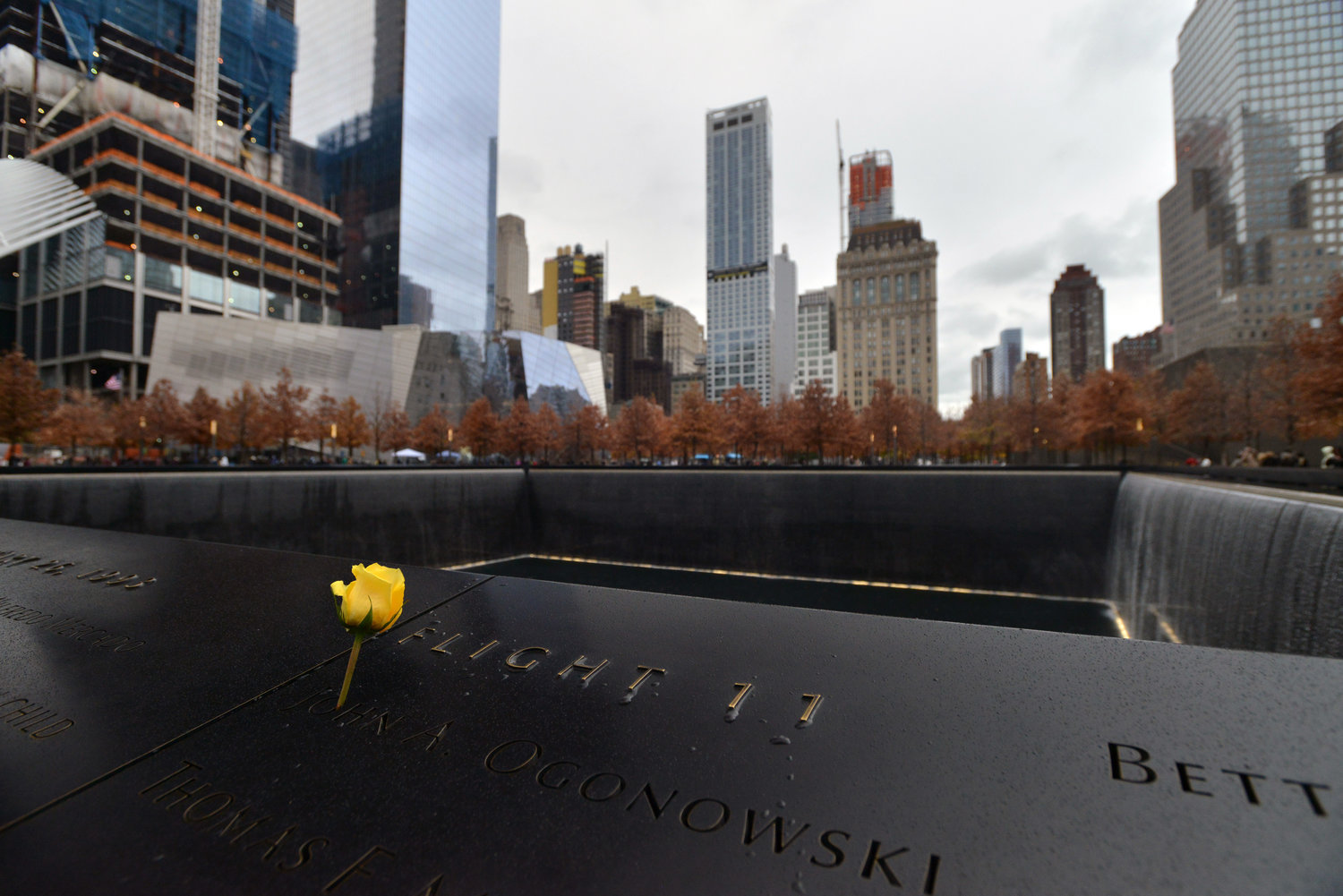For those perceived as Muslim, life after Sept. 11 was difficult
Being American, but not ‘looking’ like it
Ravin Chetram, of Oyster Bay, remembers Sept. 11, 2001 well. He recalls being on a Long Island Rail Road train on his way to work in Manhattan when there was an announcement that a plane had hit one of the World Trade Center towers.
“When we got off the train, I saw smoke,” Chetram recounted. “Outside Penn Station, everyone was crying. It was like when the Hindenburg came down.”
Even an announcer on the radio sounded like he was crying, Chetram said. “I remember holding my head with my hands and thinking, ‘This can’t be happening.’ My brother worked in a building next door to the trade center, but he wasn’t there that day. He said bodies fell on the roof of his building, and a co-worker died that day in one of the towers.”
Chetram, 48, the vice president of the Oyster Bay-East Norwich Chamber of Commerce, is of Indian descent, and the family of his wife, Denise Domenech-Chetram, is from Spain. Both were born in the United States.
Like other New Yorkers, Chetram was horrified by the terrorist attacks. But because of his dark skin and unusual name, his experience was different in the weeks, months and years that followed. Although his grandmother was Muslim and he has many Muslim cousins, he is Hindu. But when people see a Hindu with a wrapped head, they think he is Muslim, he said.
“People saw my name, and they’d assume I was Muslim,” he said. “That’s OK with me, but then they’d be so vulgar.”
Sometimes he would argue with people who were rude to him, but then he would back down. Persuading them he was Hindu was a lost cause, he explained. “And why should I say I’m not Muslim?” he said. “If I say that, I’m saying it’s OK what they are saying.”
Sometimes he believed he was in danger. “I would be walking and people would yell to me, ‘Go back to your country!’” he said. “I have no other country to go back to.”
Harjit Virk, 33, another member of the chamber, has lived in Hicksville since 2003. He was born in India, and came to the U.S. when he was 4. He belongs to the Sikh community, and lived in Queens on Sept. 11, 2001.
Many Sikhs wear turbans and grow facial hair, Virk said, and post-9/11 was a frightening time for them. He knew of a number of people who were assaulted because they were thought to be Muslims. “[Sept. 11] seemed like a movie, and I don’t think any of us felt safe,” he said. “When I went back to school, people would always ask me questions about myself. I’ve always had to deal with being called names, like Taliban.”
Virk said he has tried to explain to people what a Sikh is. He doesn’t wear a turban, but many of his friends and family members do.
The 20th anniversary of the attacks has made him uncomfortable, he said. “It brings back that scary pit in my stomach,” he said. “I don’t know if we will ever be healed from what happened on Sept. 11. And I don’t think I will ever feel truly safe.”
Jasmeet Kaur’s parents are from India, but she was born and raised in Rockville Centre. Like Virk, she is Sikh. Kaur, 36, was a high school student on Sept. 11 who volunteered at Mercy Hospital. “After 9/11,” she recalled, “I’d get comments while at the hospital like, ‘Go back to your country, you Muslim.’”
Kaur was also treated differently in school after the attacks, she said. People often asked her if she was Muslim. She was horrified when a girl sitting behind her in class said, “We need to blow up that whole area.”
Concerned about anti-Muslim sentiment, her temple gave its members bumper stickers that read, “We are Sikh.”
Her father wore a turban, and in public, Kaur said, the family “got looks.” “When we were near the mall, someone said, ‘Look at that towel-head,’” she recalled. “[Many] Muslims don’t even wear turbans, but that’s how we are perceived, and the way Muslims are incorrectly portrayed in the media.”
Twenty years later, Kaur said, people continue to be ignorant, and need to educate themselves. The conversations should begin at home, she added.
Ali Baqueri’s family is from India and is Muslim, but he was born in the U.S., grew up in Albertson and has lived in Huntington for three years. Twenty years ago he was a senior in high school. He has fair skin, and no one was racist toward him until they heard his name, he said.
“I’m very American, and people forget that I’m Muslim,” Baqueri, 37, said. “I went to Herricks High School. … Yes, there is racism on Long Island, but I don’t see it directed at me. If I were darker, it might be a different story.”
Kaur loves Oyster Bay. Although she lives in Woodbury, she can often be found at Theodore Roosevelt Memorial Park, taking a walk with her family.
Much has permanently changed since Sept. 11, she said. “Air travel, and any time I go to a Mets game, the security is different than it was before. But it has gotten better for Sikhs, because we have helped to educate people.”
But a temple was vandalized in Bellerose, Queens a couple of months ago. “I think the racism got heightened because of the anniversary of Sept. 11,” she said.







